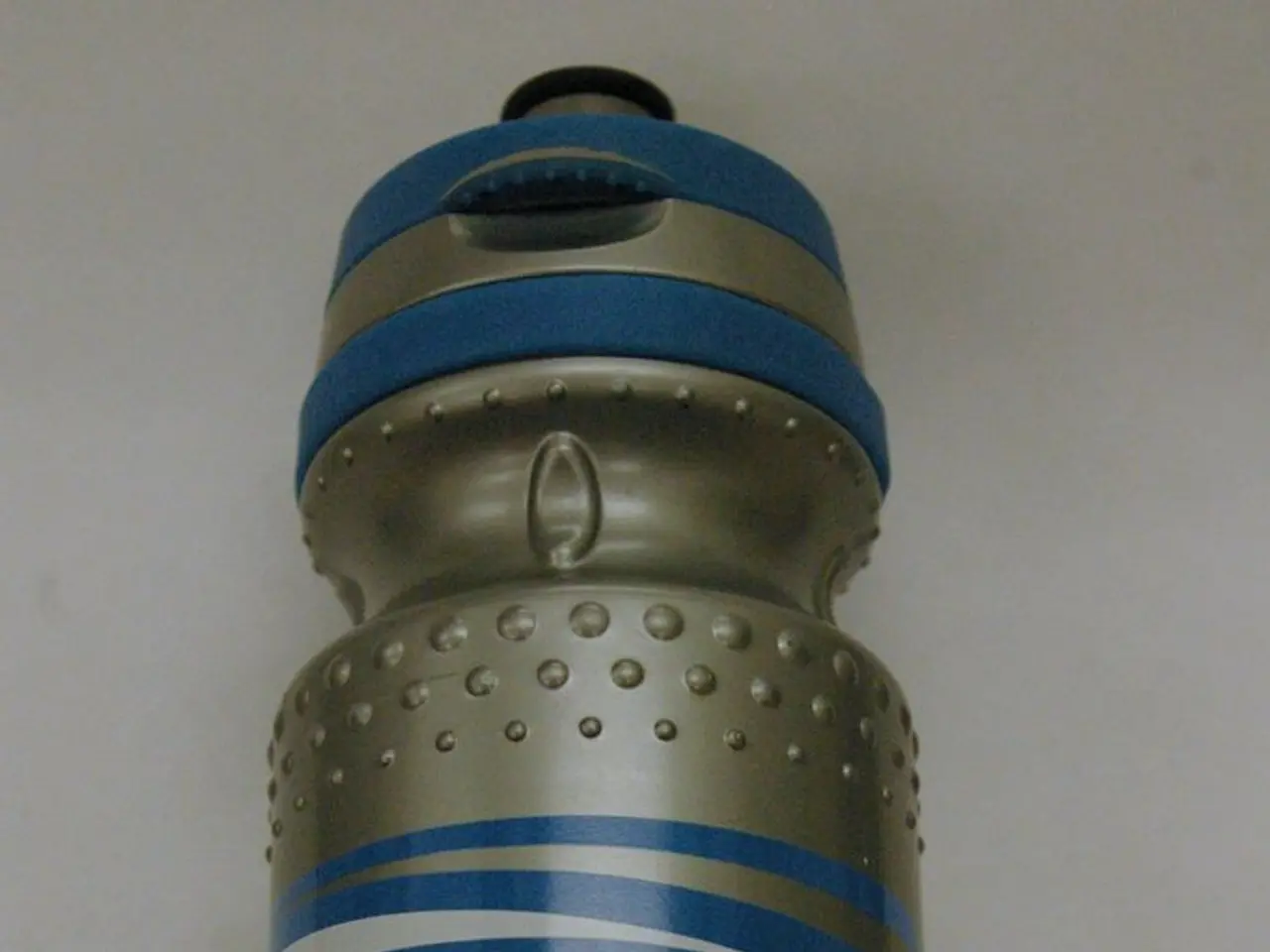"140-year-old pharmaceutical company, Boehringer Ingelheim, ventures into the field of cancer treatment, focusing on Non-Small Cell Lung Cancer (NSCLC)"
Hernexeos (zongertinib), a kinase inhibitor developed by Boehringer Ingelheim, has received accelerated approval from the Food and Drug Administration (FDA) for the treatment of adult patients with unresectable or metastatic non-small cell lung cancer (NSCLC) whose tumors harbor HER2 (ERBB2) tyrosine kinase domain (TKD) activating mutations. This marks the company's debut in the cancer space after 140 years in business.
The approval was based on data from the Phase 1 Beamion LUNG-1 trial, which showed a high objective response rate (ORR) of 75% (95% CI, 63%-83%) among 71 previously treated patients with HER2 TKD mutations. Notably, 58% of these patients maintained response for at least 6 months. In patients who had previously been treated with a HER2-targeted antibody-drug conjugate, the ORR was lower at 44%, with 27% showing durable responses.
Hernexeos is significant as it is the first and only oral HER2-targeted tyrosine kinase inhibitor (TKI) approved in this NSCLC subset. This contrasts with HER2-targeted antibody-drug conjugates (ADCs) like Enhertu (fam-trastuzumab deruxtecan-nxki), which require intravenous administration.
The FDA's approval of Hernexeos is a significant milestone in the treatment of HER2-mutant NSCLC. HER2 mutations, which occur in 2% to 4% of all NSCLC cases, are linked to worse prognoses and brain metastasis. With its approval, Hernexeos will join AstraZeneca and Daiichi Sankyo's Enhertu in the HER2-mutant NSCLC arena.
In patients with brain metastases, Hernexeos showed an intracranial response rate of 33%. Moreover, the early-stage readout of Hernexeos showed that only 2.9% of treated patients dropped out of the trial. There were no documented instances of drug-related interstitial lung disease with Hernexeos.
According to Shashank Deshpande, head of Human Pharma at Boehringer, Hernexeos has the potential to reset the benchmark for those living with HER2-mutant advanced non-small cell lung cancer. The drug, to be marketed under the brand name Hernexeos, is expected to bring in nearly $2 billion worldwide, as was the case with Enhertu last year.
It's important to note that direct head-to-head comparative clinical trial data between Hernexeos and Enhertu in HER2-mutated NSCLC are not yet available in the public domain. However, Hernexeos offers a convenient oral alternative with a demonstrated high response rate particularly in patients with TKD activating mutations after prior therapy, including those previously treated with ADCs.
Updated data from the Phase I Beamion LUNG-1 trial showed that in patients with TKD mutations, the confirmed ORR was 71%, with a median progression-free survival of 12.4 months. The FDA cleared Hernexeos under its accelerated pathway, indicating that the drug has the potential to significantly improve outcomes for patients with HER2-mutant NSCLC.
[^1]: FDA Approves First Oral Targeted Treatment for HER2-Mutant Non-Small Cell Lung Cancer [^2]: Boehringer Ingelheim's Hernexeos Approved for HER2-Mutant NSCLC [^3]: Boehringer Ingelheim's Hernexeos: First Oral Targeted Therapy for HER2-Mutant NSCLC [^4]: Boehringer Ingelheim's Hernexeos Shows Promise in HER2-Mutant NSCLC [^5]: Boehringer Ingelheim's Hernexeos Demonstrates High Response Rates in HER2-Mutant NSCLC
Read also:
- Chest X-ray findings in heart failure: An overview
- UK-Based Company, 32Co, Expands Comprehensive Sleep Centre Network Nationwide to Address Escalating Sleep Disorder Predicament
- Expanded Techniques for Amplifying Your Aesthetics Enterprise Growth
- Unconventional sources of bullseye-shaped rashes not associated with Lyme disease





